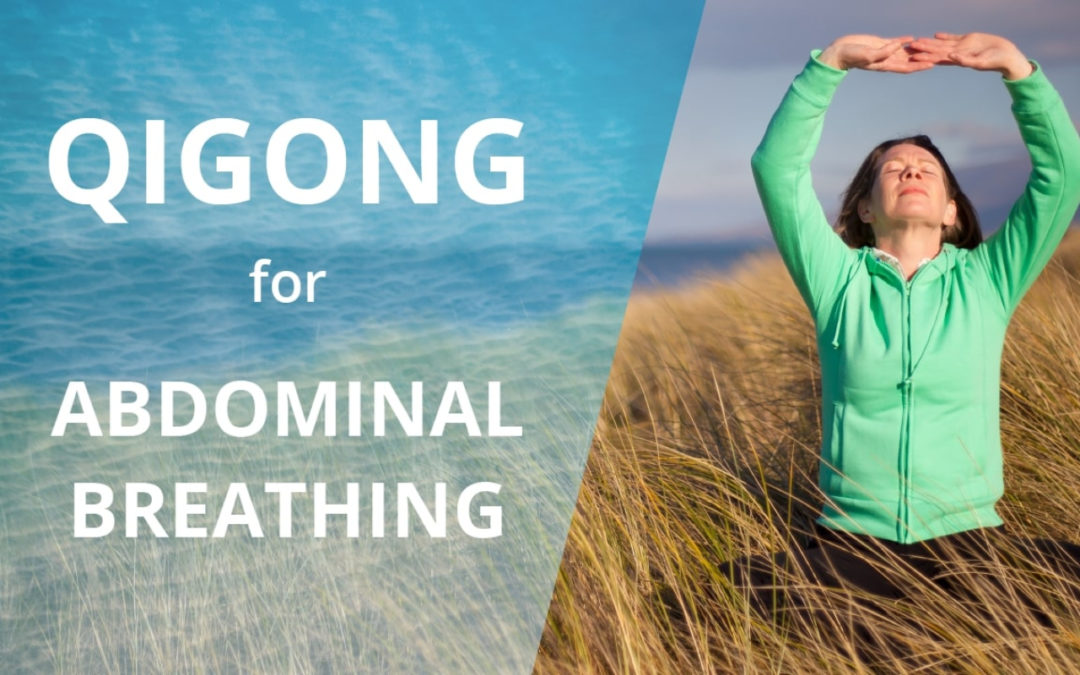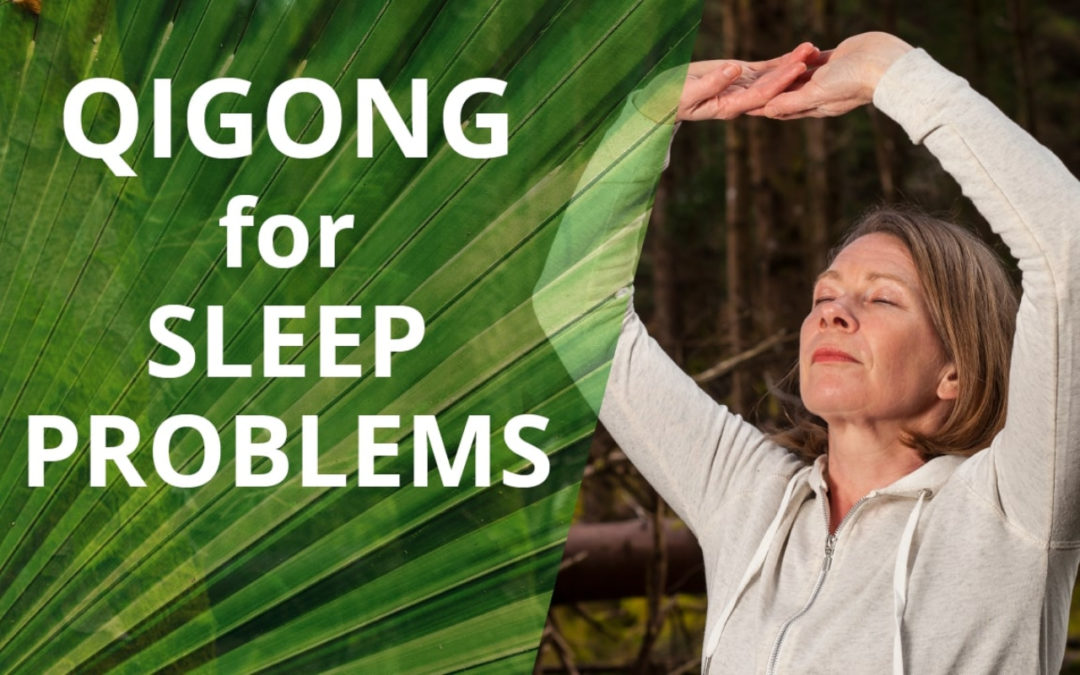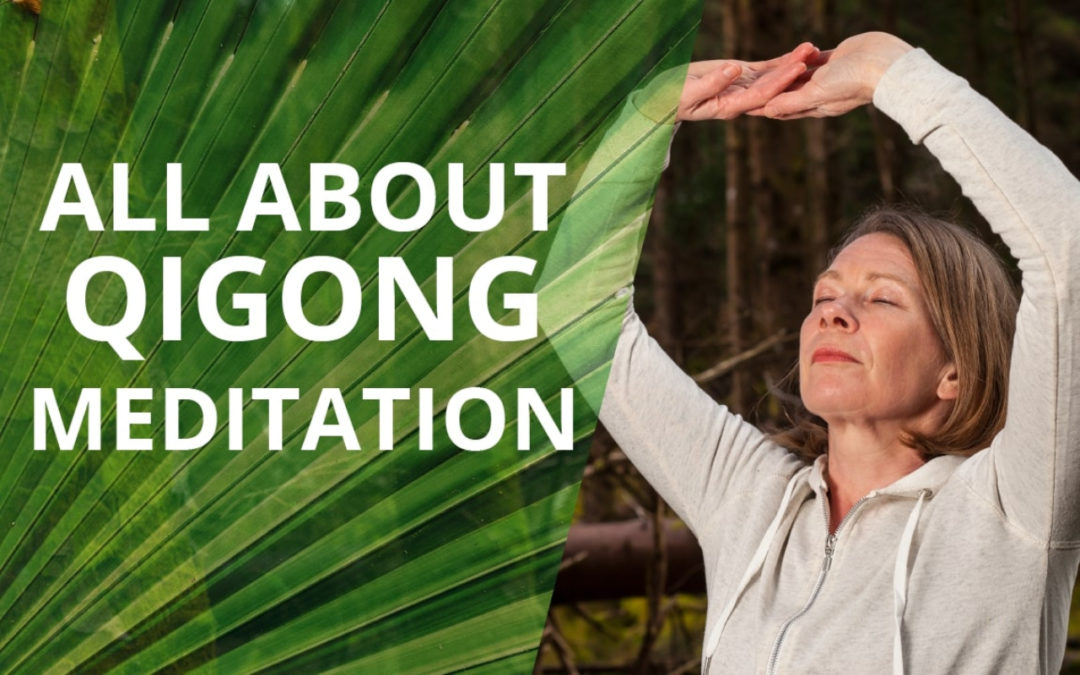
by janicetucker | 17 Jun 2019 | Qigong, Qigong & Emotional Issues, Qigong Meditations & Breathing, Qigong Practice Guidelines & General Information
This extremely well written article is one I just had to share with you all. It was sent to me by Josie at the Art of Living Retreat Centre and written by Sejal Shah, E-YRT 500 Sri Sri Yoga Teacher, YACEP, Art of Living Teacher, NYU Post Graduate Medical School approved Yoga-CME retreat facilitator, Mind-Body Wellness Writer and Homeopath. Below are listed 25 reasons to meditate.
For the full article click here.
Take a look at the list below and see how many reasons you can find to start meditating!
Meditation, simply put, is nothing but mental hygiene: clearing out the daily mental garbage and junk so that you can get in touch with your real Self and tune up your talents and skills. Think about it–you shower every day and clean your body, but do you ever shower your mind? An unshowered mind can smell as filthy as an unshowered body, maybe even more. But if you shower your mind with meditation, you’ll feel clearer and see things with a wider perspective and spread peaceful vibes.
Although meditation has been around for centuries, it is
becoming increasingly popular as more and more people discover its wide-ranging
benefits. Meditation does everything from improving your health, helping you
sleep better, and improving your mood to increasing emotional resilience and
sharpening your focus. The purpose of meditation can be different for different
individuals.
In today’s fast-paced, modern world, when you already feel
short of time, you might wonder why meditate, and whether meditation can help
you. If you have been feeling in low spirits, or nothing seems to be going your
way, your mind and body could be trying to tell you that meditation is needed
in your life.
Listen to your mind and body. If you’re receiving any of
these 25 signs, it may be time to start, ramp up, or recommit to your
meditation practice.
1. You feel exhausted and tired all the time.
‘Why am I so tired?’ was one of the 10 most-Googled health questions in 2017. This hints to just how many of us feel dogged by fatigue. A few minutes of meditation can leave you feeling more energised and rejuvenated.
2. You have repeated attacks of colds and the flu.
If you’re suffering from a lot of colds and flu, it’s a good
indication that your immunity is low. According to research, meditation can
help strengthen your immune system to help you fight infections better.
3. You’re constantly achy.
Constant aches and pains without any pathological basis is a
sign of tension and stress. You may not find relief from over-the-counter
medications, but a few minutes of regular meditation can help you become
pain-free.
4. It feels like you’re always short of time.
If you keep feeling that you have too much in your hands,
your calendar is always full, your day begins very early and ends too late, and
there is very little time to do what you really want to do, meditation can help
you find balance. While finding time to meditate may seem like an extra burden,
the boost that meditation gives to your mental well-being may help you get
everything else done faster and better.
5. You scowl a lot.
“A child smiles naturally 400 times a day, an adolescent
smiles 17 times, and an adult does not smile at all,” says meditation Guru Sri
Sri Ravi Shankar. This is because babies are stress-free. The purpose of yoga
and meditation is to put a smile on our face, in spite of all the stress and
tension we face in our day-to-day life.
6. You cry often.
If you find yourself tearing up at the slightest
provocation, small failure, or setback, work pressure, or somebody’s minor
opinions or criticism of you, meditation can help you become more emotionally
resilient. You might be wondering why certain people are always smiling and
laughing when you seem to be sad all the time–maybe they’re practicing
meditation!
7. You either brood and analyse or plan and fantasise too much.
You find yourself caught up in past regrets or making future
plans, either feeling bitter, angry, or anxious and worried. Overactive mind is
a sign of stress. Meditation is known to bring the mind into the present moment
and give you the ability to enjoy the moment as is.
8. You struggle even to make simple decisions.
When you find yourself asking either your spouse or friend
to take small everyday decisions like what to wear, which restaurant to go to,
which coffee to order, or what food to make, meditation can help you become
more confident in what you want.
9. You feel overwhelmed for no reason.
Small things start overwhelming you, and you’re always
worrying about how you’ll fit in everything you need to do today! Meditation
helps calm your mind, organize your thoughts, and tackle your day with
confidence.
10. You feel that there is a never ending workload.
Every morning you wake up dreading your workload, and the
pile of work on your desk or in your home seems to multiply no matter what you
do. Your deadlines start scaring you and you feel that you can’t cope.
Meditation can help improve your ability to multitask, and also improve your
observation, perception, and expressions, helping you be more efficient and
effective in what you do.
11. You experience too many mood swings.
You find yourself seated in the roller-coaster ride of your
mind, rapidly going up and down, feeling very happy and excited and then
suddenly sad and depressed the next moment. Meditation is great for emotional
regulation and can help you manage your mood swings.
12. You’re easily distracted.
In this era of social media, it is very easy to get
distracted, and remaining focussed is a great challenge. If you find yourself
having no control over your social media or any other such distractions,
meditation can help you remained focused and centered. Meditation improves your
focus to help you manage your life with peace of mind rather than pieces of
mind scattered here and there.
13. You experience bouts of depression.
If you very often feel a generalized low feeling, this could be a sign of non-clinical or clinical depression. Meditation can help alleviate symptoms of both.
14. You are anxious and worried most of the time.
If you’re constantly being told that you need to calm down
or relax, meditation can be a great chill pill to help you bring that nervous
energy down a few notches.
15. You make quick judgments about people.
It’s common courtesy to not judge others, but sometimes,
even though we know that, it’s hard to put into practice. Meditation helps to
keep your mind open and increases your empathy and compassion, so that you have
better control over your instincts to quickly judge people.
16. You find that you’re lacking problem-solving skills.
Meditation improves your ability to be creative and think
outside the box. It also helps increase your self-awareness, and keeps your
mind calm and collected, so that you can find new perspectives to look at your
problem and solve it effectively.
17. You keep wondering “What’s the point of all this?”
Life is complex and sometimes it feels like a constant
struggle and you have no enthusiasm left. You start wondering whether all your
painstaking efforts are even worthwhile! This is exactly a time to shut down
everything and pause and just be and allow meditation to help bring back the
spark and the joy.
18. You keep looking for a change.
Do you find yourself bored with your daily routine? Add a
few minutes of meditation to your day, and you may find that your schedule is
more refreshing than ever before.
19. You get angry for no reason.
Meditation puts you in better control of your anger and
enables you to respond to triggering situations with mindfulness, rather than
to impulsively react.
20. You’re stressed out beyond your imagination.
Sometimes you are put in a situation that demands that
you’re on your toes constantly, and you’re just plain stressed. One of
meditation’s most famous and well-researched benefits is reduced stress. Making
sure to spend just a few minutes meditating and taking care of your mind, body,
and spirit will allow you to be more happy and energetic.
21. You have high blood pressure.
Meditation has been proven to lower your blood pressure,
says Joel Kahn, M.D.cardiologist and best-selling author.
22. You suffer from insomnia or sleeplessness.
If you can’t get to bed on time, or find that you can’t fall asleep until late, or that your sleep quality is poor, you may want to start meditating. Meditation can help relax your body, releasing tension and placing you in a peaceful sleep.
23. You feel lonely.
You may think meditation is a solo activity. It may be
solitary (unless you are meditating in a group), but it actually increases your
sense of connection to others by nurturing emotional intelligence and social
connection, improving your social life.
24. You suffer from PMS.
90% of women during the days leading up to their menses
report experiencing challenging physical and emotional changes, from increased
irritability, difficulty concentrating, and appetite changes, to full-blown
depression, fatigue, and anxiety. Luckily, meditation has been found to help
women manage their symptoms.
25. Your sex life needs a boost.
By improving empathy, meditation can help you to connect
with your partner at a deeper level and thus improve your sexual relationship
too.
Meditation is something everyone can do to improve their physical, mental, and emotional health. No wonder meditation retreats and meditation meetups are increasing in popularity every day. There is a great variety of styles, too, each with different strengths and benefits. Trying out a style of mediation suited to your goals is a great way to improve your quality of life, even if you only have a few minutes to do it each day.
Make meditation part of your life, and start reaping the
physical, mental and emotional benefits. Science says it takes only 40 days to
develop new habits. For the next 40 days, commit yourself to daily meditation
and see the difference for yourself.
Happy Meditating!
What Do I Do Next?
So there you have it; 25 reasons to meditate listed above. How many signs did you identify as being aspects of your life which could do with rebalancing?
If you would like to start using Qigong to help you on your meditation journey there are a number of things you can do:
1. Head over to my Space To Relax homepage.
There you can sign up for a free 3 part video series of Qigong lessons. These three lessons will give you the perfect introduction to Qigong. They only take 5 minutes to perform and are very easy to learn. Also, scroll to the bottom of my homepage where you can sign up to receive a free audio meditation called “Calm Your Busy Mind in 8 Minutes“. I talk you through this simple breathing method in order to help you feel calm, relaxed, clear and focused in your mind.
2. Go to YouTube and subscribe to my channel by clicking the red “Subscribe” button. That way you won’t miss my regular videos which are full of useful health enhancing tips.
3. Join my free Facebook group, “Space To Relax Free Qigong Group” and leave any comments or questions for me there. I’ll be happy to answer them. Here I post articles and videos with really useful tips about how to use Qigong to improve your state of health.
4. Janice’s Video Blog
If you would like more information and access to many free video demonstrations of Qigong then head over to my video blog. Some videos of particular interest to you are listed below. Please feel free to browse through some of the others on the blog page.

by janicetucker | 19 Jun 2018 | Qigong, Qigong Meditations & Breathing, Qigong Routines
If you have children you will know that they are balls of energy! They are always running around and sometimes it can be difficult to get them to calm down so that they can focus without distraction on schoolwork and get off to sleep at night. Children love learning Qigong, and if you teach your kids in a certain way, they will think it’s magic! This is what you’ll learn from me in the video on this page; some fun Qigong for children.
Janice Tucker is a practitioner of Traditional Chinese Medicine and Medical Qigong. She is also the founder of the Space To Relax online programme of Qigong video lessons.
Please got to YouTube to subscribe to my YouTube by clicking the red “Subscribe” button so you don’t miss my regular videos which are full of useful health enhancing tips. These videos will help you to enhance your health and prevent illness from arising in the first place. Also please give this video a “Like” if you found it informative.
Why Use Qigong For Children?
The movements involved in Qigong exercises can help children to quickly improve their balance, flexibility, coordination, strength, agility, stamina and muscle tone.
The meditative aspects of Qigong can help children to reduce anxiety and worry, calm their minds, improve focus and concentration, release tension and improve mental clarity.
Two Qigong Methods For Children
The two simple methods below will be a good introduction for your children to Qigong. Teach them these methods first and then move on to the methods in my free 3 part Qigong video series (more details below).
Movement
Ask them to hold hands out in front of them at shoulder level with elbows straight. Make fists and then open and close quickly. Do this as fast as they can without losing tension. They often think this is good fun to try to move as fast as possible. This moves lots of Qi into the hands.
Next hold palms facing each other and close eyes. Move hands towards and away from each other slowly. Feel anything between the hands. Often they will feel some “resistance” or a “magnetic feeling” like the hands are being pulled together. They can also feel tingling, like their hands are swollen, heat and many other sensations. This is the Qi they are feeling in and between their hands. Children think this is magic!
Meditation
Ask children to lie on the floor with eyes closed. Place one hand flat on their belly. Breathe in and out through the nose feeling the belly rise as they inhale in and sink as they exhale. Encourage them to focus on the hand that is on the belly and to feel it moving up towards the ceiling and down towards the floor. Ask them to observe how they feel after doing this for 5 minutes. They should be calmer, more relaxed and at ease. For a full description of how to do Abdominal Breathing click here.
Where Can I Learn More?
If you would like to learn even more benefits of Qigong for children then:
- Head over to my Space To Relax homepage. There you can sign up for a free 3 part video series of Qigong lessons. You can complete these three lessons with your children. Once you’ve completed the free series you’ll have the opportunity to join my Space To Relax online membership programme of Qigong video lessons. This will allow you and your kids to take your practice to a whole new level where you will learn many exercises to eliminate health issues before they become a major problem. I’ll guide you step by step through many more effective Qigong methods which you can use for the benefit of the whole family.
- Subscribe to my YouTube channel by clicking the red “Subscribe” button. That way you won’t miss my regular videos which are full of useful health enhancing tips. Also please give this video a “Like” and share with me in the comments box what your kids thought these two methods of Qigong for children.
- Join my free Facebook group, “Space To Relax Free Group” and leave any comments or questions for me there. I’ll be happy to answer them. Also, by joining this group, you will receive regular posts of Qigong articles and videos with really useful tips about how to use Qigong to improve your state of health.
home

by janicetucker | 19 Apr 2018 | Qigong, Qigong & Emotional Issues, Qigong Meditations & Breathing, Qigong Routines, Qigong To Help Manage Specific Health Conditions
Do you ever wake up feeling as though you’ve been run over by a bus? I do, but thankfully not very often. We all know the feeling of having suffered a terrible night’s sleep. We feel exhausted both physically and mentally. We may also feel anxious that we won’t be able to function to the best of our ability at work. We may also be fearful of this happening night after night, and wonder how we are going to manage our lives if the exhaustion gets worse. In the video today you’ll learn how to use Qigong for sleep problems.
Janice Tucker is a practitioner of Traditional Chinese Medicine and Medical Qigong. She is also the founder of the Space To Relax online programme of Qigong video lessons.
Please don’t forget to subscribe to my YouTube channel by clicking the red “Subscribe” button on the page. That way you won’t miss my regular videos which are full of useful health enhancing tips. These videos will help you to enhance your health and prevent illness from arising in the first place. Also please give this video a “Like” if you found it informative.
Types of Sleep Problems
There are a number of different sleep problems which can all affect the quality and quantity of the sleep we get. The result is that they can also have a negative effect on our energy levels and our mental health. The following sleep problems are listed on the Mental Health Ireland Factsheet on Sleep where you can find more information.
- Insomnia. This affects an estimated 20% of people and is the most common sleep disorder. This is the one we will be focusing on in this video.
- Narcolepsy. This is excessive sleepiness.
- Sleep Apnoea. The person may stop breathing at intervals in the night which then wakes them so their sleep is constantly being interrupted.
- Sleep Disorders in Children. This can be distressing and exhausting for both children and parents. Sleep problems can impact on the physical and emotional health of a child so are important to address as early as possible.
The Solution – Qigong For Sleep Problems
In order to be able to sleep soundly we need to have a calm mind. Often we find that our minds are too busy when we go to bed. This over-excitement in the brain can prevent us from getting off to sleep quickly and easily.
There are many practical steps you can take to ensure that your mind is calm before bed, e.g. taking regular exercise, establishing a regular time for going to bed, turning off screens at least an hour before bed, taking a bath, avoiding coffee and alcohol a few hours before going to bed.
Qigong is also the perfect practice to help you improve the quality of your sleep because every Qigong method helps to calm your mind, the essential ingredient for good sleep.
Below are a few specific tips using Qigong for sleep problems.
- Practice Abdominal Breathing as you are lying in bed at night. Refer to my previous video called “How to Do Qigong Abdominal Breathing or Diaphragmatic Breathing“.
- Watch my previous video called “How to Calm Down with Qigong” so that your mind is in a calm state before going to bed.
- Relaxation is very important as it gets you into the state where you can easily go to sleep. Watch the video “Qigong Relaxation Techniques” for some effective Qigong tips on how to do this.
- Watch another video from me called “Qigong for Sleep Difficulties” which will give you more information and useful methods of Qigong for sleep problems.
What Do I Do Next?
If you would like to start using Qigong for sleep problems then:
- Head over to my Space To Relax homepage. There you can sign up for a free 3 part video series of Qigong lessons. These three lessons will you to help to improve the quality and quantity of your sleep. Once you’ve completed the free series you’ll have the opportunity to join my Space To Relax online membership programme of Qigong video lessons. This will allow you to take your practice to a whole new level where you will learn many exercises to eliminate health issues before they become a major problem. I’ll guide you step by step through many more effective Qigong methods which work to calm and clear your mind; essential factors in enabling you to sleep soundly.
- Subscribe to my YouTube channel by clicking the red “Subscribe” button. That way you won’t miss my regular videos which are full of useful health enhancing tips. Also please give this video a “Like” and share with me in the comments box any tips you might have to improve the quality of your sleep.
- Join my free Facebook group, “Space To Relax Free Qigong Group” and leave any comments or questions for me there. I’ll be happy to answer them. Also, by joining this group, you will receive regular posts of Qigong articles and videos with really useful tips about how to use Qigong to improve your state of health.
home

by janicetucker | 7 Feb 2018 | Qigong, Qigong & Emotional Issues, Qigong Meditations & Breathing, Qigong Routines
One of the most common complaints I hear in my acupuncture clinic is that of insomnia and poor sleep. The subject of today’s post is how to use Qigong for insomnia and sleep difficulties.
Clients in my acupuncture clinic often say to me:
“I’m not sleeping as I’m too stressed”,
“I have difficulty getting off to sleep and then feel exhausted”,
“My thoughts play over and over in my head which stops me from sleeping”,
“I wake up at 3 am and then can’t get back to sleep as my mind is too busy”.
Sound familiar? If so then this video will show you how to use Qigong for insomnia and sleep difficulties. With a little practice you will soon notice an improvement in your sleep and therefore your energy levels the next day!
Janice Tucker is a practitioner of Traditional Chinese Medicine and Medical Qigong, and the founder of the Space To Relax online programme of Qigong video lessons.
Please don’t forget to subscribe to my YouTube channel by clicking the red “Subscribe” button. That way you won’t miss my regular videos which are full of useful health enhancing tips. These videos will help you to enhance your health and prevent illness from arising in the first place. Also please give this video a “Like” if you found it informative.
The Problem – Why Do We Suffer From Insomnia?
In terms of Traditional Chinese Medicine it is only possible for us to experience full and restful sleep when our mind is calm. A calm and peaceful mind is essential for calm and peaceful sleep. If our minds are too busy then we will find it difficult to sleep, no matter how exhausted we are going to bed.
The Solution – Qigong For Insomnia and Sleep Difficulties
One of the main benefits of Qigong practice is that it helps to calm and clear our minds. Qigong brings us into the present and allows us to focus clearly on what we are doing. Many of the physical exercises in Qigong are extremely relaxing so this in turn helps to calm our mind.
Qigong also requires us to pay conscious attention to our breath. Breathing usually takes the form of what is called “Abdominal Breathing”. During this method, as you breathe in your belly expands and as you breathe out your belly shrinks and this is extremely relaxing.
The key to using Qigong for insomnia is to perform exercises which calm your mind, especially before bed. It’s as simple as that. The more you practice these exercises, the better quality and quantity of sleep your will enjoy!
What Do I Do Next?
If you would like to start using Qigong for insomnia then:
- Head over to my Space To Relax homepage. Scroll to the bottom of the homepage to sign up for a free audio meditation called “Calm Your Busy Mind in 8 Minutes“. This is the perfect breathing and visualisation method to help you to sleep better. On the homepage you can also sign up for a free 3 part video series of Qigong lessons. This will take you even further towards calming and clearing your mind so that you can enjoy peaceful sleep.
- Subscribe to my YouTube channel by clicking the red “Subscribe” button. That way you won’t miss my regular videos which are full of useful health enhancing tips. Also please give this video a “Like” and share with me in the comments box what you do to get off to sleep at night.
- Join my free Facebook group, “Space To Relax Free Group” and leave any comments or questions for me there. I’ll be happy to answer them. Also, by joining this group, you will receive regular posts of Qigong articles and videos with really useful tips about how to use Qigong to improve your state of health.
- Watch my previous video on “How To Calm Down With Qigong“. This will give you even more tips on Qigong for insomnia by showing you how to calm your mind and bring it into a restful state to be able to sleep at night.
home

by janicetucker | 5 Aug 2016 | Qigong, Qigong Meditations & Breathing, Qigong Routines
Most of us of heard of meditation but what specifically is Qigong meditation and how can it help us in our lives? This video from Dr Janice Tucker explains Qigong meditation for you and highlights some of the many benefits of Qigong meditation for your health and day to day life.
Please don’t forget to subscribe to my YouTube channel by clicking here so you don’t miss my regular videos which are full of useful health enhancing tips. Also please give this video a “Like” if you found it informative.
Janice Tucker is a practitioner of Traditional Chinese Medicine and Medical Qigong, and the founder of the Space To Relax online programme of Qigong video lessons.
What is Qigong Meditation?
Qigong meditation is a meditation which can be still or moving. It involves the breath, posture and often simple, gentle movements. Qigong meditation helps to quiet your mind, make you feel tranquil. It also makes your body feel as though it is merging with the environment!
Qigong meditation focuses on relaxation so that you can calm the scattered thoughts in your mind. The movements and breath allow your Qi to flow much more freely, in an unimpeded way, around your body. When the Qi is doing this you feel much more relaxed, clearer, calmer and also energetic. Through regular Qigong meditation practice you will actually improve your state of health.
Because it is such a tranquil, quiet practice an interesting thing can also happen; you can be sitting for hours and it feels as though only a few minutes have passed by. For example, when I teach a Qigong meditation in my workshops that takes 15 minutes, my students often say afterwards that they feel as though only 5 minutes has passed by!
Qigong mediation alters your perception of time because you are so relaxed and enjoying being in the moment to the extent that you don’t feel the time passing!
How Can Qigong Meditation Help Us?
By allowing the free flow of Qi:
you feel calm and focused
scattered thoughts in your mind become more grounded
overwhelm is reduced
the stresses and strains of modern day living are easier to cope with
you feel much more able to take things in your stride
you feel much more energetic, with an underlying calmness
The result is that you become a nicer person to be around! People notice the difference in you when you are practising Qigong meditation regularly. This only has to involve an investment of a few minutes each day. You will notice that your relationships start to improve because you are giving off a much more “serene vibe”. People really will pick up on this!
When you achieve a calm mind:
1. Your sleep improves – we cannot sleep unless our minds are calm. If you have lots of thoughts whirring around in your mind it is almost impossible to sleep.
2. You are able to focus and concentrate much better during the day.
If you are interested in learning some free Qigong meditation then click on my Space to Relax homepage. Scroll to the bottom of the page where you can sign up for a free Qigong mediation called “Calm Your Busy Mind In 8 Minutes“. You can download the meditation to your laptop, tablet or phone. You can take it outside with you and practice in your favourite place in nature. You will notice in the very short space of time practising this meditation how much calmer and relaxed you feel so I invite you to try it!
Also, if you head over to my free group on Facebook, “Space To Relax Free Group” you can leave any questions for me there and I’ll be happy to answer them.
Please don’t forget to subscribe to my YouTube channel by clicking here so you don’t miss my regular videos which are full of useful health enhancing tips. Also please give this video a “Like” if you learned much more about Qigong meditation by reading this article.
http://spacetorelax.com/







